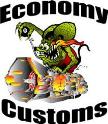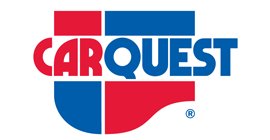Archive for December 2018Not So Hot in BristolPosted December 30, 2018 1:25 AMWhen the weather turns cold, it's nice to crank up the furnace and enjoy the heat. But if your home's furnace doesn't work, it's not too comfortable. Same goes with your vehicle. When the heater's not working, things can get miserable. It could also signal some major problems, which we'll discuss later. A vehicle's heating system is fairly complicated. It's made up of several parts, including a blower motor/fan, a heater core and some mechanical and electrical components. In basic terms, a vehicle's engine warms up coolant which is then sent to the heater core (which is kind of like a small radiator) behind the dash. That blower motor sends cold air through the heater core which heats up the air. Voila! Heat. Diagnosing problems in this system takes a trained mechanic because of the different possible issues. Your heater core may need replacing; they are sometimes in tight spots and may be difficult to work on. Another possible problem could be a defective thermostat, which regulates how the coolant flows through the engine. You may have a leak somewhere in your cooling system. Those leaks may be something as simple as a detached hose clamp or as serious as a bad head gasket. A knowledgeable technician at Economy Transmission and Auto Repair will be able to track the problems down. For those reasons, it's wise to get your vehicle's heating system repaired. Not only can driving an unheated vehicle on a cold day freeze your fingers, some related engine problems that are not repaired could leave you stranded. Smart drivers keep up the maintenance on their vehicle's cooling system; it's a hot tip to prevent a cold vehicle. Economy Transmission and Auto Repair Give me a Brake (Light)!Posted December 23, 2018 9:26 AMIf that little brake warning light pops up on your dash, do you know what it means? Well, if you said no, you wouldn't be alone. You know it has something to do with your brakes, but exactly what? You're not sure. One of the reasons is that it could mean a lot of different things. It could be something simple, like you put your parking brake on and forgot to take it off. Easy fix, you're on the road in seconds. Or, it could mean there's something wrong with your anti-lock brake system. That is a pretty complex symphony of speed sensors, computers and wiring, and sometimes things get a little out of whack. You could have a defective sensor or some wiring may have gotten damaged or come loose. A trained technician at Economy Transmission and Auto Repair with special equipment can sort it all out. It's also possible you have low brake fluid. That could be caused by a number of things. One simple reason is that your brake pads have worn down. Replacing them could solve the problem. Another possibility is that you have a leak in your brake system. That could be serious. If your brake fluid level gets really low, your stopping power goes down along with it, and a vehicle that can't stop is a safety hazard to you and others on the road. Of all the warning lights on your instrument panel, pay attention to the brake warning light. If it comes on, come on over to Economy Transmission and Auto Repair very, very soon. A vehicle is great when it's moving. But if it can't stop, well, that is a disaster waiting to happen. We’d love to hear from you. Let us know if you have any questions. Economy Transmission and Auto Repair Hold the Oil! (Oil Pan Gasket Replacement)Posted December 16, 2018 11:56 AMYou've likely heard how important oil is to your vehicle's engine. Did you know that there's one part that's responsible for holding that oil so you can use it every day? It's called the oil pan, and it sits at the bottom of the engine. The oil pan is a vital, though simple, part of your engine's lubrication system. Oil circulates through parts of your engine to keep them lubricated. It reduces friction so everything works smoothly. Without oil, friction would quickly destroy your engine. The oil pan keeps that oil contained in the lubrication system, so it's important that the oil doesn't leak out. Since it's a metal part attached to another metal part, there is a gasket between the oil pan and the part of the engine it attaches to. Various things can put stress on the oil pan and gasket, including weather extremes, the speed you're traveling and the condition of the oil. You may drive over a couple of bad roads and kick up debris onto your oil pan. All this wear and tear, heat and time can take their toll. So after a while, the gasket can just wear out and start leaking. It usually starts pretty slowly. If you see oil visible under your vehicle where you park it, that might be a sign of a leaky oil pan gasket. Another sign? You smell burning oil coming from your engine. If the leak is bad and your engine has lost a lot of oil, you may eventually see the oil light go on. Let your service advisor know if you are experiencing any of these things. Driving with insufficient oil can badly damage your engine. And it can do it quickly. A Economy Transmission and Auto Repair trained technician will check to find the source of the leak. It may just be a gasket, but it also could be the oil pan is damaged and needs replacing as well. This is a repair you should get taken care of. Your engine needs its lubrication system intact to provide you many years of service. Economy Transmission and Auto Repair What is a TSB? (Technical Service Bulletins)Posted December 9, 2018 10:45 AMIf your vehicle had something in its design or production that the manufacturer had figured out had an unanticipated problem, you'd want to know about it. And you'd want it fixed. There is something that can help drivers with just such a scenario. It's called a Technical Service Bulletin, or TSB. Here's what a TSB is. Vehicle design and manufacturing is a very complex process. Aftrer every vehicle is introduced, the more units there are on the road, the more likely weaknesses in parts or design will start to show up. Automakers gather data on the issues and how best to fix them. Then they send out TSBs (usually in the first year of the new model) so technicians will know to look for those problems and what to do about them. There may be more than one cause of a problem with a vehicle so there may be more than one TSB for an issue. A TSB can be issued for anything from failing water pumps to strange noises to smelly headliners. A TSB and a recall aren't the same thing. A recall is issued if there's a problem that could cause harm to people or if it creates illegal emissions. The manufacturer pays for a safety defect to be fixed, and the repair is usually performed at a dealership. But when a Technical Service Bulletin is issued, it's because there's a pattern of some system not working the way it should. If a vehicle is under warranty and the problem can be diagnosed in a specific vehicle, the manufacturer will probably pay for the repair. But there may be limits. Take one case with certain models of a minivan. Some wheel bearings were failing prematurely, so the manufacturer extended the warranty on them to 5 years or 90,000 miles/145,000 km. After that, the owner bore the cost. In some cases, a manufacturer will reimburse owners for a repair already done at an independent service facility. You may have a vehicle that is no longer covered by a warranty but a TSB has been issued for a certain problem. In that case, any service facility can perform the service. At Economy Transmission and Auto Repair, your service advisor will have access to TSBs that have been issued for your vehicle's year and model. They will help the technician diagnose it if your vehicle has the issue. The TSB will also have advice for the best repair procedure to get your vehicle working the way it should. Economy Transmission and Auto Repair Power Steering Service in BristolPosted December 2, 2018 8:32 AM
Economy Transmission and Auto Repair | ||
SearchArchiveFebruary 2010 (2)March 2010 (4) April 2010 (3) May 2010 (4) June 2010 (4) July 2010 (4) August 2010 (4) September 2010 (5) October 2010 (1) November 2010 (5) December 2010 (5) January 2011 (4) February 2011 (4) March 2011 (5) April 2011 (4) May 2011 (4) June 2011 (5) July 2011 (4) August 2011 (21) September 2011 (4) October 2011 (4) November 2011 (5) December 2011 (4) January 2012 (5) February 2012 (4) March 2012 (4) April 2012 (4) May 2012 (2) June 2012 (3) July 2012 (1) August 2012 (1) November 2012 (1) December 2012 (2) March 2013 (1) April 2013 (3) May 2013 (2) October 2013 (5) November 2013 (2) January 2014 (2) February 2014 (3) March 2014 (2) July 2014 (3) August 2014 (7) September 2014 (4) October 2014 (5) November 2014 (4) December 2014 (4) January 2015 (5) February 2015 (4) March 2015 (4) April 2015 (5) May 2015 (2) June 2015 (6) July 2015 (2) September 2015 (2) October 2015 (5) November 2015 (3) December 2015 (3) February 2016 (1) March 2016 (5) April 2016 (4) May 2016 (5) June 2016 (4) July 2016 (5) August 2016 (4) September 2016 (4) October 2016 (5) November 2016 (4) December 2016 (4) January 2017 (5) February 2017 (4) March 2017 (4) April 2017 (4) May 2017 (4) June 2017 (5) July 2017 (5) August 2017 (4) September 2017 (3) October 2017 (5) November 2017 (4) December 2017 (3) January 2018 (5) February 2018 (4) March 2018 (4) April 2018 (5) May 2018 (4) June 2018 (4) July 2018 (5) August 2018 (4) September 2018 (5) October 2018 (4) November 2018 (4) December 2018 (5) January 2019 (4) March 2019 (4) May 2019 (2) June 2019 (5) July 2019 (2) August 2019 (2) September 2019 (4) October 2019 (5) November 2019 (4) December 2019 (5) January 2020 (5) February 2020 (4) March 2020 (5) April 2020 (1) May 2020 (2) July 2020 (2) August 2020 (5) September 2020 (4) October 2020 (4) November 2020 (5) December 2020 (4) January 2021 (6) February 2021 (4) March 2021 (4) April 2021 (4) May 2021 (5) June 2021 (4) July 2021 (4) August 2021 (5) September 2021 (4) October 2021 (5) November 2021 (4) December 2021 (4) January 2022 (6) February 2022 (4) March 2022 (4) April 2022 (4) May 2022 (5) June 2022 (4) July 2022 (3) September 2022 (4) October 2022 (5) November 2022 (4) December 2022 (4) January 2023 (5) February 2023 (4) March 2023 (4) April 2023 (5) May 2023 (4) June 2023 (4) July 2023 (5) August 2023 (4) September 2023 (4) October 2023 (1) January 2024 (1) February 2024 (4) March 2024 (1) | CategoriesAir Conditioning (17)Alignment (17)Alternator (6)Auto Safety (6)Automotive News (8)Battery (20)Brake Service (4)Brakes (22)Cabin Air Filter (8)Check Engine Light (6)Cooling System (19)Customer Detective Work (1)Dashboard (3)Diagnostics (5)Diesel Maintenance (1)Differential Service (4)Drive Train (9)Emergency Items (1)Engine Air Filter (2)Exhaust (12)Fluids (17)Fuel Economy (10)Fuel Pump (1)Fuel Saving Tip: Slow Down (2)Fuel System (47)Headlamps (6)Inspection (11)Keys to a long lasting vehicle (4)Maintenance (53)Monitoring System (3)Oil Change (7)Older Vehicles (4)Parts (7)PCV Valve (2)Safe Driving (1)Safety (6)Serpentine Belt (6)Service Intervals (9)Service Standards (13)Shocks & Struts (9)Shocks and Struts (1)Spark Plugs (2)Steering (15)Suspension (3)Timing Belt (6)Tire Rotation and Balancing (3)Tires (10)Tires and Wheels (40)TPMS (3)Transfer Case Service (1)Transmission (11)Trip Inspection (4)Warranty (2)Water Pump (1)What Customers Should Know (81)Wheel Bearings (1)Windshield Wipers (9)Winter Prep (7)Winter Tires (1) | |








